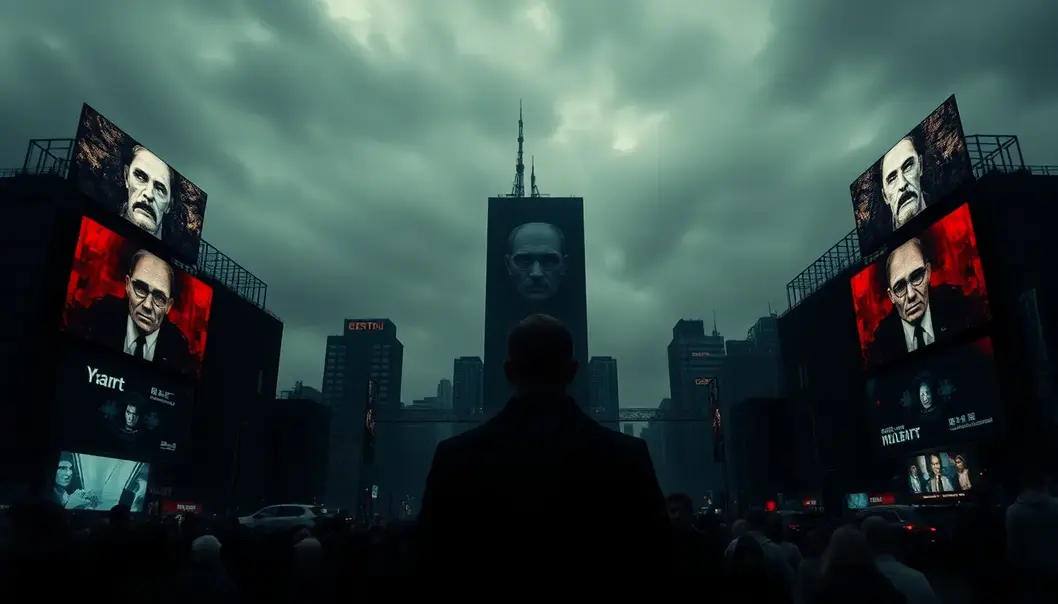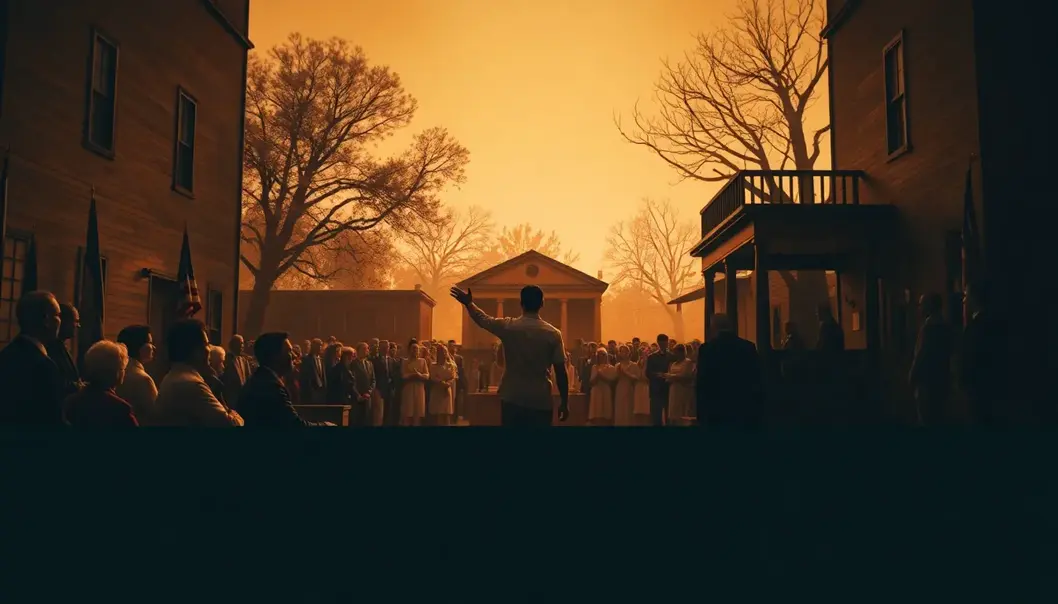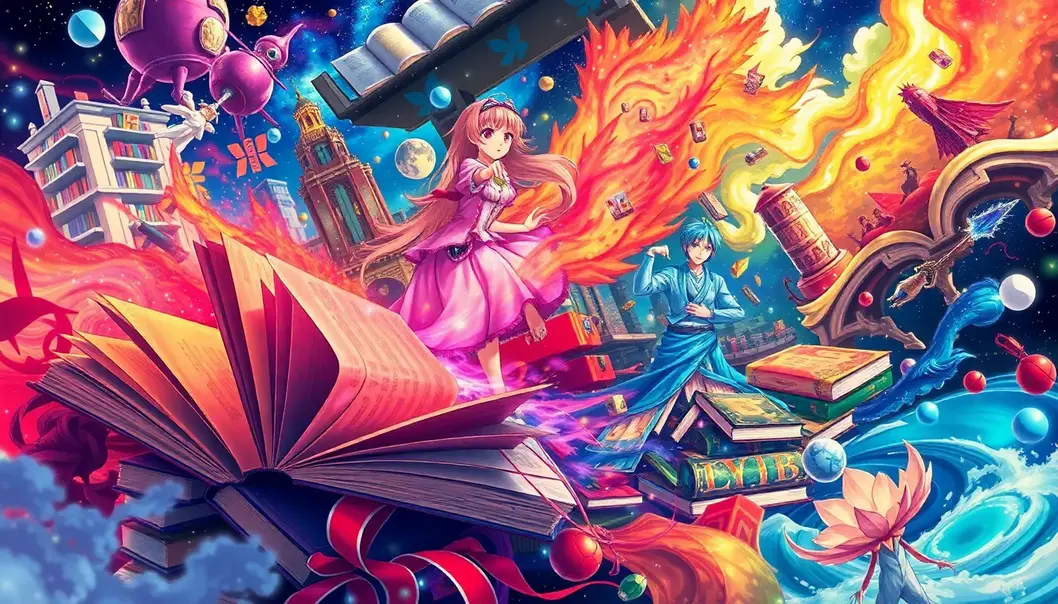When we think of worlds that open our minds to new perceptions, anime often takes center stage. Yet, the literary world holds a treasure trove of works that have shifted societal paradigms, much like our beloved anime universes. These pivotal books provide profound commentary on societal structures, human nature, and the intricacies of civilization itself. For anime fans, these reads offer a chance to dive deep into narratives that are as compelling and transformative as any animated saga. So, let’s unsheath these literary swords and delve into books that have wielded great power over how we view our society.
1984: Dystopian Futures and Present Realities

George Orwell’s ‘1984’ masterfully crafted a narrative that remains eerily relevant in modern discourse. It envisioned a world where government dominance erases individuality and freedom, capturing the darkest potentials of centralized power with unforgettable symbols like Big Brother and the thought police. These elements prompt an uneasy reflection on our present-day reality, particularly as technology and state apparatuses grow omnipresent.
Anime enthusiasts find a chilling resonance between ‘1984’ and series like ‘Psycho-Pass’. In this anime, the Sybil System, a vast network embedded in society, continually monitors individuals, preemptively determining the threat level they pose based on their mental state. Much like Orwell’s omnipresent, oppressive gaze, the Sybil System challenges the notion of autonomy, forcing both characters and viewers to question if such surveillance ensures safety or subtly erodes free will. It raises critical ethical questions similar to those posed by Orwell, centered around personal privacy and the reach of authoritarian control.
‘1984’s’ influence extends to ‘Attack on Titan’, where the remnants of humanity are pushed into a walled dystopia, ostensibly for their protection. The anime’s portrayal of the state manipulating information to maintain its power echoes the perpetual war and propaganda in Orwell’s narrative, underscoring how fear and conflict are leveraged to justify the erosion of freedoms. This narrative parallel provides anime fans with a poignant story of resistance against a government that perceives the populace as mere cogs within its dominion, a theme as recognizable in Orwell’s work as in Eren Yeager’s rebellion against the Marleyan control.
Both ‘1984’ and these anime series address a fundamental fear of losing one’s agency to overwhelming bureaucracies. The Orwellian concepts of control permeate these stories, highlighting a persistent societal tension: the struggle between relinquishing freedom for security and maintaining individuality in the face of authoritarian regimes. As we explore literature and anime, these narratives beckon us to reflect on our own well-being within the constructs of power, feeding our fascination with potential dystopian futures that may not be as far-fetched as they seem.
To Kill a Mockingbird: Justice and Morality Under the Microscope

Harper Lee’s ‘To Kill a Mockingbird’ stands as a monumental narrative exploring profound themes of justice, racial inequality, and moral integrity. Set in the fictional town of Maycomb, Alabama, during the Great Depression, the novel presents a microcosm of the larger societal issues that continue to resonate globally. Through the eyes of the young protagonist, Scout Finch, readers embark on a journey of understanding that adolescents and adults alike are compelled to navigate.
Scout, much like Naruto Uzumaki from the anime ‘Naruto’, confronts a society rife with prejudice and imposed roles. Naruto’s journey from a marginalized outcast to a respected leader mirrors Scout’s transformation from innocence to awareness. Both characters face a reality where moral choices and societal expectations clash, challenging their perceptions and those around them.
The parallel between Scout and anime characters unfolds in their shared pursuit of truth and equity. In ‘To Kill a Mockingbird’, Atticus Finch represents moral integrity, standing as a steadfast advocate for justice. This echoes the moral landscape explored in many anime series, where characters like ‘Naruto’ often grapple with defining what true justice means in a flawed world. For instance, both series question whether justice is delivered through legal systems or if it is a broader, more personal code of ethics. This reflection on equity and truth is not just a literary device but a call to action, encouraging viewers and readers to critically evaluate their own beliefs and actions.
Harper Lee’s portrayal of systemic injustice goes beyond the confines of Maycomb. Her narrative shines a light on the pervasive nature of prejudice and the courage required to challenge it, themes also prevalent in anime that explore societal struggles. Such anime often draw viewers into dystopian worlds or historical settings, much like Lee’s depiction of the American South, where the quest for justice is fraught with obstacles and moral quandaries.
Just as Scout learns that courage is not a man with a gun but the ability to stand up for what’s right even when the odds are against you, anime characters frequently embody a similar resilience. The beauty of these stories lies in their capacity to inspire change, propelling individuals to question the status quo and strive for a more equitable society.
In the narrative fold of books like ‘To Kill a Mockingbird’ and anime storytelling, we find reflections of our endless pursuit of justice. They compel audiences to delve deeper into their convictions, sparking a dialogue on morality and integrity. For enthusiasts of both literature and anime, these narratives offer profound insights into justice, encouraging a timeless quest for truth and understanding, much like exploring the impact of climate change on oceans leads to a greater appreciation of environmental complexities.
Final words
These books, much like our favorite anime, invite us to question, reflect, and sometimes even rebel against societal norms. By exploring these narratives, we forge a deeper connection with the world around us and our role within it. As intriguing as any anime arc, the stories resonate with the strength of a thousand pages turned. So, continue your journey from animated tales into literary explorations where the magic of transformation endlessly unfolds.
Dive deeper into books that redefine narratives! Visit our extensive library for more!
Learn more: https://www.literaryjourney.com/library
About us
Literary Journey is your gateway to an expansive world of books that offer insightful and engaging narratives. Our curated library is perfect for both seasoned readers and those seeking to explore new literary worlds, whether you’re a fan of classic tales or modern masterpieces.

